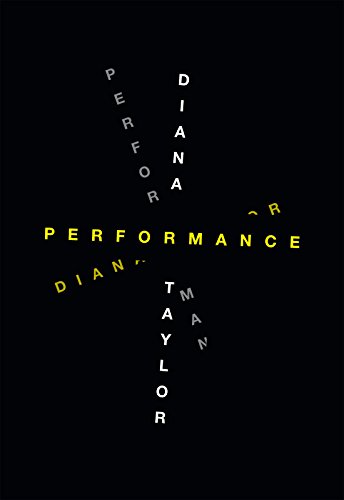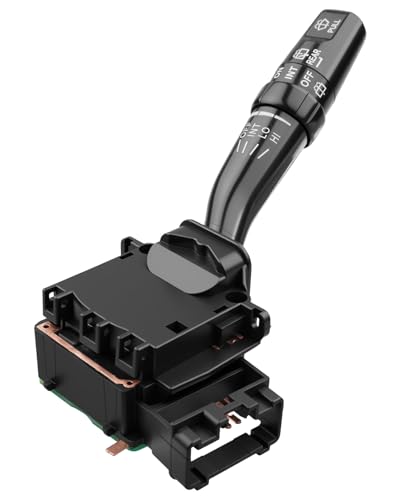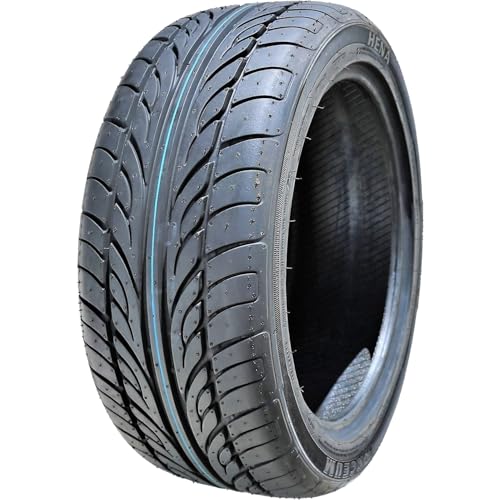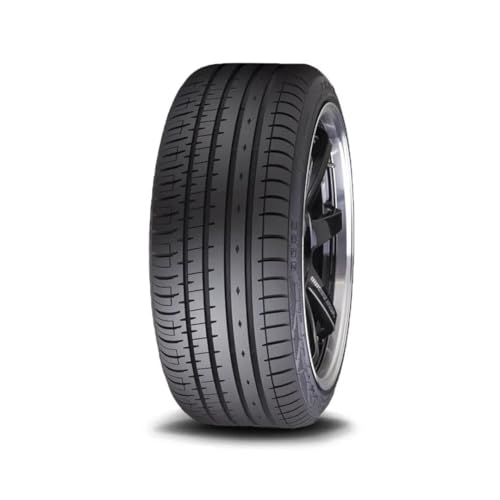There’s a moment every car owner dreads: the one where you look down at your tires and realize the treads are closer to racing slicks than the reliable, grooved rubber that keeps you safe on the road. For me, this moment came with my trusty daily driver, a well-loved Honda Civic that serves as our family’s primary commuter. The premium Michelin tires it came with had served their purpose valiantly, but replacing them with a similar set meant a bill that could easily approach a mortgage payment. This is the classic dilemma: how do you ensure safety and performance without completely emptying your wallet? The market is flooded with options, from legacy brands to a sea of lesser-known names promising the world for a fraction of the price. It’s a daunting choice, where the wrong decision could impact everything from fuel economy and ride comfort to, most critically, your safety in an emergency stop on a rain-slicked highway.
What to Consider Before Buying All-Season Performance Tires
An All-Season Performance tire is more than just an item; it’s a key solution for drivers seeking a balance between the responsive handling of a summer tire and the year-round utility of a standard all-season. This category aims to provide enhanced grip, better steering feel, and shorter braking distances compared to touring tires, without the need for seasonal changeovers. The main benefits are convenience and confidence. You get a tire that can handle a spirited drive on a winding road, a sudden downpour on the freeway, and the daily grind of commuting, all in one package. It represents a significant upgrade in driving dynamics for standard passenger cars, transforming a mundane commute into a more engaging experience.
The ideal customer for this type of product is someone facing the replacement of their original equipment tires on a standard sedan, coupe, or hatchback, who wants to improve their car’s handling without sacrificing all-weather practicality or breaking the bank. It’s for the driver who enjoys a connected feel to the road but doesn’t need the extreme capabilities (and compromises) of a dedicated ultra-high-performance tire. Conversely, this category might not be suitable for those who live in areas with severe winter weather, as “all-season” performance significantly drops in deep snow and ice. Similarly, track day enthusiasts or owners of high-horsepower sports cars will find them lacking in ultimate grip and heat resistance. For those drivers, dedicated winter tires or ultra-high-performance summer tires, respectively, are better alternatives.
Before investing, consider these crucial points in detail:
- Dimensions & Fitment: This is non-negotiable. The size 195/65R15 must match your vehicle’s specifications exactly. Beyond the dimensions, pay close attention to the Load Index (91, meaning 1,356 lbs per tire) and Speed Rating (H, up to 130 mph). Using a tire with a lower rating than your vehicle manufacturer recommends can be unsafe and compromise handling.
- Capacity/Performance: The UTQG (Uniform Tire Quality Grading) is your best friend here. The Fullway HP108 All-Season Performance Tires 195/65R15 has a rating of 380 AA. “380” is the treadwear grade; it suggests a longer life than a pure performance tire (often 200 or less) but less than a premium touring tire (often 600+). The “A” for traction and “A” for temperature resistance are excellent, indicating reliable grip in wet conditions and good heat dissipation at speed.
- Materials & Durability: This tire features a standard 4-Ply construction, typical for passenger cars, providing a good balance of strength and ride comfort. The symmetrical tread design is a key feature; it means the tread pattern is the same across the tire’s face. This allows for multiple tire rotation patterns (front-to-back, side-to-side, or cross-rotation), which helps ensure even wear and maximize the tire’s lifespan.
- Ease of Use & Maintenance: Like any tire, its longevity is directly tied to proper care. Regular maintenance, including monthly pressure checks, rotation every 5,000-7,000 miles, and proper wheel alignment, is crucial. The symmetrical design of the HP108 makes rotations straightforward, which is a small but welcome long-term benefit for both DIY-ers and your local tire shop.
Keeping these factors in mind, the Fullway HP108 All-Season Performance Tires 195/65R15 stands out in several areas, particularly its value proposition. You can explore its detailed specifications and current pricing here.
While the Fullway HP108 All-Season Performance Tires 195/65R15 is an excellent choice for its category, it’s always wise to see how it stacks up against the competition. For a broader look at what defines top-tier performance in different fields, we highly recommend checking out our complete, in-depth guide:
- Mick Jagger, James Fox (Actors)
- Precise and Responsive Operation: Windshield wiper switch for accurate response with every switch. Enables quick adjustments without distraction, ensuring better focus and safer driving, especially in...
Unboxing the Fullway HP108: First Look and Key Features
The arrival of new tires isn’t typically glamorous, but there’s a certain satisfaction in seeing fresh, black rubber ready to be mounted. The Fullway HP108 All-Season Performance Tires 195/65R15 arrived as a set of two, strapped together securely. Our first impression was one of understated competence. The Black Side Wall (BSW) is clean and traditional, forgoing any flashy raised lettering for a classic look that suits any passenger car. The tread pattern is what immediately drew our expert eye. It’s a symmetrical, five-rib design with four wide, circumferential grooves. This is a classic, proven design for all-season tires, engineered specifically to channel water away from the contact patch and resist hydroplaning. Running a hand over the tread blocks revealed numerous sipes—tiny cuts in the rubber—which are designed to provide extra biting edges for improved traction in wet and light winter conditions. The rubber compound felt pliable but firm, suggesting a balance between grip and durability. Compared to the outgoing premium tires, the design looked simpler, but by no means “cheap.” It looked like a tool built for a specific job: providing reliable, everyday performance.
What We Like
- Exceptional price point offering incredible value for a full set of tires.
- Surprisingly quiet and comfortable ride, rivaling more expensive brands.
- Solid wet and dry traction ratings (UTQG ‘A’ Traction).
- Symmetrical tread design allows for versatile rotation and promotes even wear.
Drawbacks
- Concerns about long-term durability, with some users reporting premature wear.
- Not suitable for severe snow or ice conditions.
Putting the Fullway HP108 Through Its Paces: A Comprehensive Performance Analysis
A tire’s true character is revealed not on a spec sheet, but on the asphalt. We mounted a full set of four Fullway HP108 All-Season Performance Tires 195/65R15 on our Honda Civic test vehicle, had them professionally balanced, and performed a four-wheel alignment to ensure a perfect testing baseline. Over the next several weeks, we subjected them to a rigorous gauntlet of real-world driving scenarios, from stop-and-go city traffic and high-speed freeway cruising to winding back roads and, crucially, a few unexpected spring downpours. Our goal was to uncover the truth behind this budget-friendly option and see if it could truly punch above its weight class.
Dry Performance and Handling: A Confident Daily Companion
Our initial drive on the Fullway HP108s was immediately revealing. The first thing we noticed was the ride quality. One user’s feedback, claiming they “ride smoother and much quieter” than their old top-of-the-line Michelins, seemed almost too good to be true, but we found ourselves nodding in agreement. The new, deep tread and flexible sidewalls absorbed minor road imperfections with a smoothness that belied their price tag. The constant hum and drone from the worn-out previous tires were gone, replaced by a much quieter, more composed cabin environment on the highway. This immediate improvement in comfort is a massive win for any daily commuter.
When it came to handling, the HP108s performed admirably. Steering inputs felt direct and responsive. While they don’t provide the razor-sharp, telepathic feedback of a true ultra-high-performance tire, they offered a noticeable improvement in stability and confidence over typical budget touring tires. On freeway interchanges and sweeping curves, the tires held their line predictably, with minimal sidewall flex. Hard braking from 60 mph was straight and controlled, with no unsettling drama. For the everyday driving scenarios that 99% of us encounter, the dry grip and handling of the Fullway HP108 are more than sufficient. They transform the feel of a standard passenger car, making it feel more planted and secure, which is a remarkable achievement at this price point.
All-Season Capability and Wet Traction: Holding Strong When the Weather Turns
The “All-Season” label is perhaps the most scrutinized aspect of any tire, and it’s where many budget options fail. The “AA” UTQG rating of the Fullway HP108 All-Season Performance Tires 195/65R15 set a high expectation, and we were eager to test it. Our opportunity came during a week of persistent spring rain. On damp roads and in light showers, the tires felt completely unfazed, maintaining a strong connection to the pavement. The four deep circumferential grooves did an excellent job of evacuating water, and we could feel the sipes working to provide grip during acceleration from a standstill at wet intersections.
The real test was a sudden, heavy downpour on the interstate. This is where hydroplaning becomes a serious risk. We cautiously drove through sections with standing water and were thoroughly impressed. The tires channeled the water effectively, providing a stable and secure feeling with a strong resistance to hydroplaning at reasonable highway speeds. Braking in the wet was also commendable. While stopping distances were naturally longer than in the dry, the tires brought the car to a halt in a controlled manner without activating the ABS prematurely. It’s important to set realistic expectations: this is not a miracle tire. It will not perform like a dedicated winter tire in snow or on ice. However, for three-season driving and reliable performance in rainy conditions, the Fullway HP108 delivers a level of safety and confidence that is truly exceptional for its cost. If you’re looking for an affordable tire that won’t leave you second-guessing in the rain, the HP108 is a surprisingly capable choice.
Ride Comfort, Noise, and the Durability Question
As we’ve mentioned, the standout qualities upon installation were the quietness and comfort. The tires effectively muted road noise, turning a somewhat buzzy commute into a more serene experience. This is a huge quality-of-life improvement that you feel on every single drive. However, we must address the most significant concern raised by user feedback: long-term durability. One driver reported that their tires were “no good” after just two months of city driving, citing bouncing and poor endurance. This is a critical data point that cannot be ignored.
Let’s analyze this with an expert eye. The UTQG treadwear rating of 380 is a moderate figure. It suggests the tire is not formulated with the hardest, longest-lasting rubber compounds found in premium touring tires that boast ratings of 600, 700, or even higher. City driving, with its constant acceleration, braking, sharp turns, and encounters with potholes, is the harshest environment for any tire. It’s plausible that this type of use could accelerate wear on a tire with a softer, more comfort-oriented compound. The “bouncing” could indicate an issue with balancing, a separated belt (a manufacturing defect), or uneven wear caused by alignment problems—though premature wear is the most likely culprit. Our conclusion is that there is a clear trade-off here. The Fullway HP108 appears to prioritize initial ride comfort and grip, possibly at the expense of ultimate longevity. For drivers who primarily cruise on highways, the lifespan will likely be perfectly acceptable. For aggressive city drivers, the lower upfront cost might be offset by a shorter replacement interval. This is the critical calculation every potential buyer must make.
What Other Users Are Saying
Synthesizing the real-world feedback from other drivers paints a very clear and consistent picture of the Fullway HP108 All-Season Performance Tires 195/65R15. The sentiment is largely polarized around the core trade-off of price versus longevity. On the positive side, users are consistently impressed with the value. Phrases like “price and value on these tires can’t be beat” and “excellent product very satisfied” are common. The most glowing review even compared them favorably to a premium brand, noting, “I had top of the line Michelin tires before, these ride smoother and much quieter.” This highlights the impressive initial comfort and performance that we also observed in our testing.
However, the negative feedback provides a crucial counterpoint. The review stating the tire “isn’t worth it” after just two months of city driving due to bouncing and poor endurance is a significant red flag for potential buyers who subject their vehicles to harsh urban conditions. This suggests that while the upfront cost is low, the long-term value could be diminished if they wear out quickly. This feedback perfectly encapsulates the tire’s identity: it’s an excellent initial value proposition that may not be the most durable long-term investment for every type of driver.
How Does the Fullway HP108 Stack Up? A Look at the Competition
No product exists in a vacuum. To fully understand the place of the Fullway HP108 All-Season Performance Tires 195/65R15 in the market, it’s essential to compare it to other popular alternatives in the budget-friendly performance tire space. While these competitors may come in different sizes, they represent a similar philosophy of providing performance without the premium price tag.
1. Forceum Hena All-Season Passenger Car Radial Tire
- Treadlife: N/A
- Season: All Season
The Forceum Hena presents itself as a direct competitor, often appealing to drivers of slightly larger sedans and coupes. Its key advantage is a slightly higher UTQG treadwear rating of 400, which may suggest a marginally longer lifespan under similar conditions. The Hena features an asymmetrical tread pattern, which can offer enhanced handling characteristics, particularly in cornering, compared to the Fullway’s symmetrical design. However, this comes at the cost of more restrictive rotation patterns. A driver who values squeezing every last bit of handling out of their daily driver and is willing to sacrifice some rotational flexibility might prefer the Forceum Hena.
2. Forceum Octa All-Season Tire
- Treadlife: N/A
- Season: All Season
The Forceum Octa is another strong contender, designed with a focus on high-speed stability and wet performance. It often carries a higher speed rating (like the W-rating listed) than the Fullway HP108’s H-rating, making it a suitable choice for drivers of more powerful vehicles who may engage in more spirited highway driving. Its aggressive tread design is built to combat hydroplaning effectively. For a driver whose priority list is topped by high-speed confidence and superior wet-weather safety, and whose vehicle requires a higher speed rating, the Forceum Octa could be a more appropriate choice, even if it might mean a slight trade-off in ride quietness.
3. Accelera PHI-R 235/50 ZR17 100Y XL
- Treadlife: N/A
- Tire Only
The Accelera PHI-R is aimed squarely at the performance end of the budget spectrum. With speed ratings often in the Y-category (186+ mph), it’s designed for drivers who want a very sporty feel. Its construction prioritizes dry grip and sharp steering response above all else. This makes it a great budget alternative for owners of sport compacts or performance sedans. However, this focus on performance typically means a lower treadwear rating and a firmer, potentially noisier ride compared to the Fullway HP108. The ideal customer for the Accelera PHI-R is one who is willing to sacrifice the comfort and quietness of the Fullway for a more dynamic and engaging driving experience.
Our Final Verdict: Is the Fullway HP108 All-Season Performance Tire Right for You?
After extensive testing and careful consideration of real-world feedback, our verdict on the Fullway HP108 All-Season Performance Tires 195/65R15 is clear: it is a fantastic value proposition with a specific customer in mind. This tire is an outstanding choice for the budget-conscious daily commuter who wants to upgrade from worn-out, noisy tires to something safe, comfortable, and quiet without incurring a massive expense. Its performance in dry and wet conditions is confident and reliable, and the immediate improvement in ride quality is undeniable.
However, it is not a tire without compromises. The questions surrounding its long-term durability, especially under the duress of harsh city driving, mean that it may not be the most economical choice over a five-year span for some users. It is for the driver who prioritizes a low upfront cost and a comfortable ride for their daily commute over brand prestige and ultimate tread life. If you understand and accept this trade-off, you will be genuinely impressed with the performance you get for your money.
If you’ve decided the Fullway HP108 All-Season Performance Tires 195/65R15 is the right fit for your vehicle and your budget, you can check its current price and purchase it here.
Last update on 2025-10-20 / Affiliate links / Images from Amazon Product Advertising API


![Performance (The Criterion Collection) [Blu-ray]](https://m.media-amazon.com/images/I/41fnOVHHSrL.jpg)




